If you’re heading off for a tropical vacation, some ocean snorkeling is likely to be on your list of things to do.
Snorkeling is a beautiful and relaxing activity that lets you experience incredible life underwater without the cost and heavy equipment needed for scuba diving.
But if you haven’t done it before, it’s pretty normal to feel a little uncomfortable or nervous to begin with.
We’re going to take you through everything you might come across when you’re snorkeling, including how the vital equipment can feel.
With a little bit of knowledge, you’ll be ready to enjoy your trip into the blue and avoid the pitfalls that could make it less fun.
- How Does Snorkeling Make You Feel?
- What Does It Feel Like To Go Snorkeling For the First Time?
- Can Snorkeling Feel Scary or Uncomfortable?
- Can I Get the Feeling of “Not Enough Air”?
- What Does Snorkeling On the Surface Feel Like?
- What Does Duck Diving Feel Like?
- What Does It Feel Like To Wear Snorkel Gear?
- Does Snorkeling Feel Like Scuba Diving?
- Do I Need To Equalize My Ears When Snorkeling?
- Does Snorkeling In a Tropical Location Feel Different Than Elsewhere?
- How Do You Feel After Snorkeling?
- Conclusion
- You Might Also Like…
Disclosure: this post contains affiliate links (clearly marked with ), which means we may earn a commission if you buy something through them, at no additional cost to you.
How Does Snorkeling Make You Feel?
Once you’ve got past any beginner’s issues, snorkeling is usually an easy activity that is tremendously enjoyable.
Floating along at the surface can range from a highly relaxing, almost meditative experience in calm waters to an exciting, adrenaline-filled ride when you’re drift snorkeling.
Passionate snorkelers who have an interest in the natural world get a thrill from discovering what they find with their buddy and learning about their sightings.
While snorkeling isn’t an extreme sport, it is a surprisingly good workout for your core and legs and can leave you feeling quite tired after a long session.
So snorkeling has an awful lot to offer, but in the beginning, you might have to put in a little bit of effort to learn the skills, get used to the equipment and gain experience.
We’re going to look at what you can expect the first time and see how to avoid common problems.
What Does It Feel Like To Go Snorkeling For the First Time?
There’s going to be a lot going on the first time that you try snorkeling.
Remember that it’s recommended that you try somewhere that’s calm and shallow so that you can start slowly without having to contend with deep water or wind and waves along with everything else.
Even in calm waters, when you put your face in the water for the first time, you will likely experience a few new feelings straight away.
First, there’s the cool water on your face that many people find instantly relaxing, and then there’s the relative silence as your ears go underwater, and you start to hear the “blue” noise.
You might be aware of the mask pushing slightly against your face, which is normal and is caused by the water pressure that’s felt even just below the surface.
As you breathe in and out, you’ll be aware of the sound and become very conscious of your breath.
You might even feel a little resistance from breathing through the snorkel.
Just try and relax and breathe in and out deeply and you’ll soon forget about the extra sound.
As you start to kick around, remember to use your fins and not your hands.
The fins can feel odd, to begin with, and it can be challenging to work out exactly how to swim with them effectively.
It’s a good idea to practice with all the equipment in the pool before you head off for an exciting snorkel excursion.
These are all new feelings, but quite quickly, you’ll probably get used to them and won’t be paying them any attention.
However, not everything you feel might be as straightforward.
Can Snorkeling Feel Scary or Uncomfortable?
Unfortunately, it is pretty common for new snorkelers to have a bad experience the first time.
Tour operators are often too eager to sell trips to inexperienced holidaymakers that leave them feeling disappointed or even frightened.
Snorkeling can feel a bit overwhelming and even scary, so take a look at our tips for beginners to avoid some of the most common problems that you might face.
Even the best-prepared new snorkeler will probably find some challenges on the way, so what might you come across?
Difficulty Floating
While it isn’t necessary to be a strong swimmer to snorkel, feeling that you’re not floating safely will be scary.
It’s a good idea for all snorkelers to wear a snorkel vest that you can inflate if you need extra buoyancy.
If you feel uncomfortable and worried, wear a life jacket to be more confident.
You might also like to use a float or ring that you can rest your arms on in front of you to help you feel relaxed.
Vertigo
It’s normal for new snorkelers to feel uncomfortable floating over water that’s relatively deep.
Start in shallow water and try to remember that you’re going to be floating along at the surface just fine, irrespective of the depth.
Difficulty With the Equipment
Beginners often have some sort of difficulty with the equipment, and the most common thing that people find scary is getting water in the mask or snorkel.
We’re going to talk about snorkeling equipment in a little bit, but for now, remember that practice makes perfect, and the more relaxed you are, the easier it will be until after a while, the equipment won’t cause any worries.
Fear of Fish and Other Undersea Life
Seeing the undersea life is usually the main reason people want to snorkel, so being afraid might seem funny.
However, it’s common and understandable to feel a bit nervous about what you could see, especially with some of the wild stories you might have heard.
Remember that so long as you behave responsibly, you don’t have anything realistic to be concerned about.
Most injuries suffered when snorkeling are due to getting too close to rocks or corals and touching them, which can cause nasty cuts.
Stay well away, and you’ll be fine.
Getting Left Behind
Fear of being left in the sea can be pretty scary, but you don’t need to worry about this in reality.
Stay with the group if you’re on a guided trip, or if you’re in a pair, stay close to your buddy.
Keep a regular check on how far you are from the exit point or the boat and if you’re feeling a little uncomfortable, just stay near it.
Exhaustion
It’s normal to get tired quickly as a beginner.
Often this is because you’re not used to using the fins efficiently.
Start swimming slowly, stay relaxed, and use your fins only and not your arms as they just waste energy.
If you do get tired, you can stop and float, and remember to ask your buddy for help if needed.
Can I Get the Feeling of “Not Enough Air”?
When breathing normally, slowly, and deeply, you’ll be getting plenty of air as you snorkel.
You might find yourself ultra-aware of your breathing because of the extra noise you’ll hear and the slight resistance from inhaling through the snorkel tube.
If you’re focusing a lot on your breathing, you can feel like you’re not getting enough air.
However, if you can relax and slow down, you’ll quickly realize that you can breathe just fine.
You’ll want to avoid getting into a situation where you’re panicking or are overly exerting, as then the snorkel can make it a bit harder to breathe.
If this happens, stop and float on your back, ask your buddy to help, and breathe slowly until you’ve regained your comfort.
What Does Snorkeling On the Surface Feel Like?
In most situations, snorkeling should be about floating rather than vigorous swimming.
You’ll be carried along, and as you relax, you’ll find that you begin to flex to match the gentle movement of the surface of the water.
Once you’re comfortable, it feels as if the water supports you, and you’ll use your fins just to glide and direct yourself gently.
As you get more confident, you’ll start to feel how your breathing affects your buoyancy.
When you exhale, you make yourself less buoyant, so breathing out fully lets your body sink just enough to dip almost below the surface to get a better view.
What Does Duck Diving Feel Like?
If you want to take a closer look at what you’ve discovered from the surface, then duck diving can be enjoyable.
But if you’ve never done it before, there are a few things you’ll need to know.
Take your time to relax before you start to dive.
If you’re feeling nervous, then your breathing won’t be calm, and you’ll find it a lot harder.
Take two nice deep breaths in and out, and as you take in the third, hold it in and start to dive.
You need to bend at the waist to get your head facing downwards, and as you do, lift your legs up so their weight above the water pushes you down.
To save energy, resist the temptation to try and paddle yourself down with your hands, and just use your fins for swimming downwards.
As soon as you leave the surface, you’re going to feel the effects of the water pressure, and you’ll need to equalize your ears to keep them safe.
The easiest way is to pinch your nose through the mask pocket and gently blow out against it.
It takes some practice, and until you’re proficient, don’t force yourself to go deep as you can damage your ears.
If you stay relaxed and move slowly, you might be surprised at how long you can hold your breath.
But as soon as you feel the urge, start to swim upwards, and once you reach the surface, you can breathe easily.
Start slowly, and as you build confidence and get the techniques practiced, you’ll be able to stay under for longer.
Once you are comfortable, you’ll enjoy the wonderful weightless feeling underwater and can play with moving being able to move in all directions.
What Does It Feel Like To Wear Snorkel Gear?
If you’re on vacation and just giving snorkeling a try, it’s normal to use the rental equipment that the company has.
However, the quality of this equipment can vary hugely and is often worn and won’t fit you well.
Rather than compromise, you’ll find the whole snorkeling experience a lot more fun if you have your own mask, snorkel, and fins that fit correctly and aren’t due for retirement.
Mask
The mask seals onto your face to keep your eyes and nose dry, so you’ll feel a little bit of pressure where it sits.
You can adjust the strap to make it stay in place, but you shouldn’t make it too tight as this will be uncomfortable and also make it more likely for the mask to leak.
Ensure that the strap isn’t twisted and is sitting above your ears, not over them, and the back should be on the broadest part of your head.
Take care that you don’t get any hair caught inside the mask seal, as this will make the mask leak badly.
When you have your face in the water, you might feel that the mask pushes onto you a little more.
This is normal and is from the pressure that the water itself applies.
You won’t be able to breathe in through your nose as it’s inside the mask space.
For many people, not being able to breathe through their nose takes a bit of getting used to.
Try taking nice slow breaths in and out through your mouth with the mask on before you get in the water.
If you feel a little water inside the mask as you’re snorkeling, all you need to do is push the frame gently at the top against your head, take a deep breath in and then blow a long breath out through your nose to push the water out.
Remember, you can always stop and lift your head out of the water to empty the mask if that doesn’t work.
Snorkel
Your snorkel comes with a mouthpiece that you need to bite onto gently and then seal your mouth around so that you can breathe without any water getting in.
Snorkels are available with varying sizes of mouthpieces, and it’s a good idea to get one that fits, so it feels as comfortable as possible.
Make sure that it’s attached to your mask properly with the clip and will sit vertically when you’re snorkeling and isn’t pulling your mouth awkwardly.
As you breathe in and out through the snorkel, you will probably find that you become particularly aware of your breathing as it will be a lot louder than usual.
You might also find a slight resistance due to breathing through the tube.
Just try and relax and breathe deeply and slowly and you’ll be fine.
If you do have a problem, you can follow our tips for effortless breathing while snorkeling.
Fins
Before you even get in the water, the fins feel awkward.
You’ll need to walk carefully backward, sideways, or do a kind of penguin walk if you need to put them on before you get in the water.
Once you’re in, fins can feel cumbersome until you get used to them, and it’s possible that you might experience cramps.
However, once comfortable, you can effortlessly move in all directions without using your arms.
Like all the snorkeling equipment, it’s a good idea to practice with fins in a pool first to get used to how they feel.
You should also make sure that they fit well, as fins that are too small or too large can be very painful.
If you’re going to be doing a lot of shore snorkeling, it’s best to get the open-heel type of fins that work with booties, so your feet are protected as you walk in and out.
If you’re only going from the boat, then full-foot fins are a good choice, especially for beginners.
If you do start to feel a cramp in your leg, you should roll onto your back and grab the tip of the fin to help extend the muscle while you massage it with your free hand.
Snorkel Vest or Life Jacket
If you’re not that good a swimmer, then wearing a lifejacket can help you feel a lot more confident as you snorkel.
It’s vital that the jacket fits properly and is completely secured before you get in the water.
You’ll find that the jacket holds your body well up on the surface, so you might need to lean your neck down a little to be able to see below you.
A snorkel vest can help all snorkelers feel confident, as you’ll know that if you get a bit tired or in difficulty, you can inflate the vest to help you float comfortably.
Does Snorkeling Feel Like Scuba Diving?
There are certainly similarities between snorkeling and scuba diving, and you can usually wear the same mask and fins for both.
You’ll find a similar feeling of wonder and connection as you get to see the underwater world.
However, where snorkeling is generally a passive watching experience from the surface, scuba divers get to spend long periods underwater where they can change depth and move and view things in all directions.
The general silence is similar while scuba diving, although you do get the noise from your bubbles.
Scuba diving feels like being able to snorkel in every direction.
While snorkeling is easier to learn and requires less equipment, people that are confident snorkelers usually make excellent scuba divers.
Do I Need To Equalize My Ears When Snorkeling?
You shouldn’t need to equalize your ears when you’re snorkeling at the surface as they’re just a couple of inches below the surface.
However, if you want to duck dive, it’s important to remember to equalize as soon as you leave the surface.
Does Snorkeling In a Tropical Location Feel Different Than Elsewhere?
Snorkeling in tropical waters is generally as easy as it gets.
You won’t have to wear a wetsuit, so you will feel complete freedom of movement as you swim around the warm, clear waters.
Tropical locations generally have good water clarity, so you’ll readily be able to enjoy seeing the fish.
However, you’ll have to make sure that you are suitably protected from sunburn by a rash guard or reef-safe sunscreen.
How Do You Feel After Snorkeling?
Hopefully, you’ll feel a sense of enjoyment and satisfaction having had a great experience.
You might also feel a sense of curiosity that has you heading to fish ID guides to discover what it was you saw.
You might also feel surprisingly tired as you can get a workout when snorkeling.
If you didn’t enjoy it that much but want to have another go, try and identify what went wrong.
It might just be the case that the conditions were a bit much and you need to have another go somewhere calmer.
Conclusion
Snorkeling is a fantastic and easily accessible activity that allows you to check out the underwater world for yourself.
It’s normal to feel a bit apprehensive the first time you have a go, but if you start gently, you’ll get the hang of it in no time.
You’ll feel enjoyment, excitement, wonder, relaxation, and at the end probably a bit tired from all the fun.
You Might Also Like…
-

Can You Drown Snorkeling? 11 Common Reasons (+Helpful Tips)
-

Can I Use Snorkeling Fins for Bodyboarding? Pros & Cons (+6 Tips)
-

What Colors to Avoid When Snorkeling? (& Which You Should Wear)
-

Is It Safe to Fly After Snorkeling? What You Should Know (+4 Tips)
-
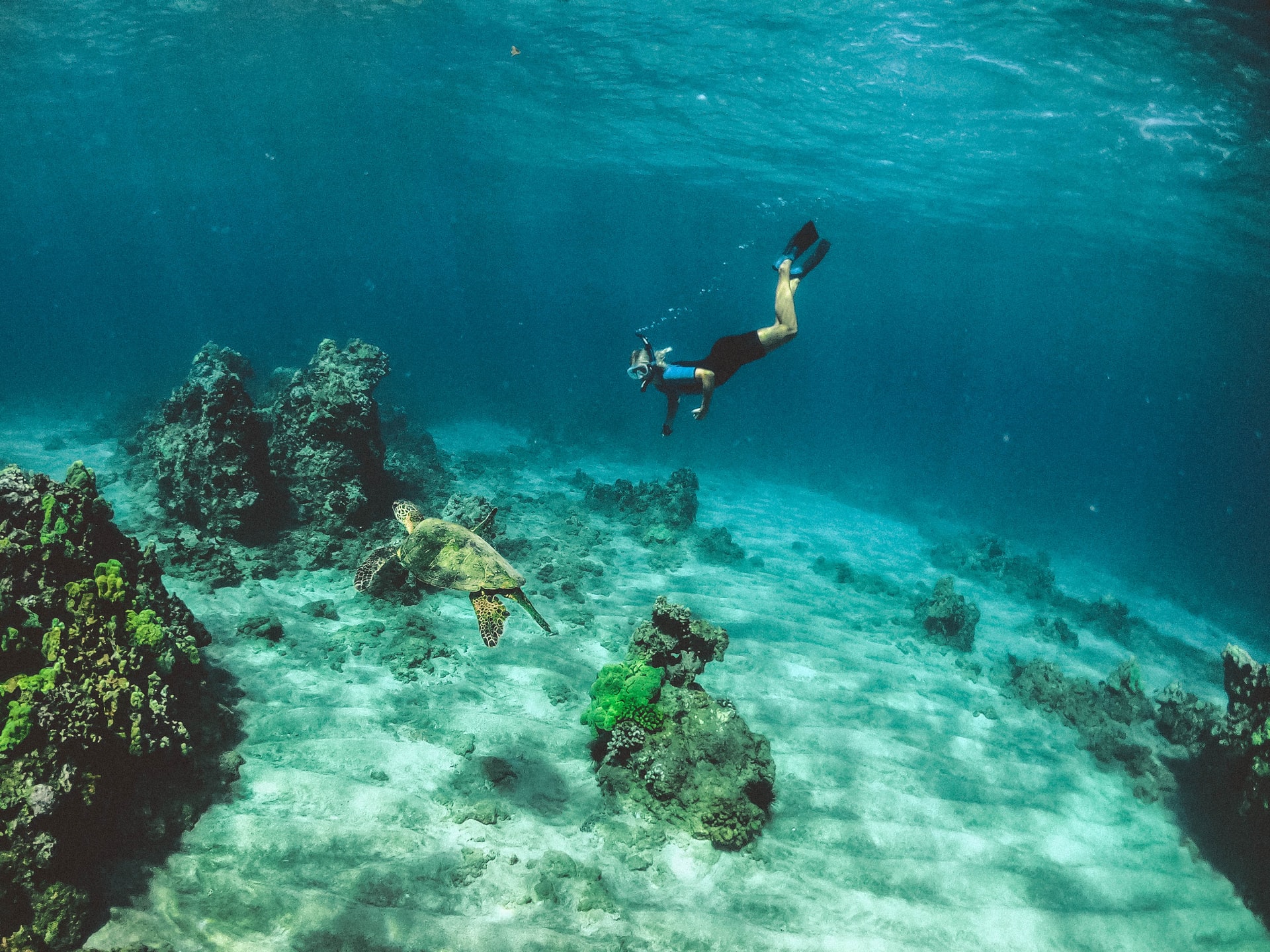
Can’t Hear After Snorkeling? 3 Possible Causes (& Solutions)
-
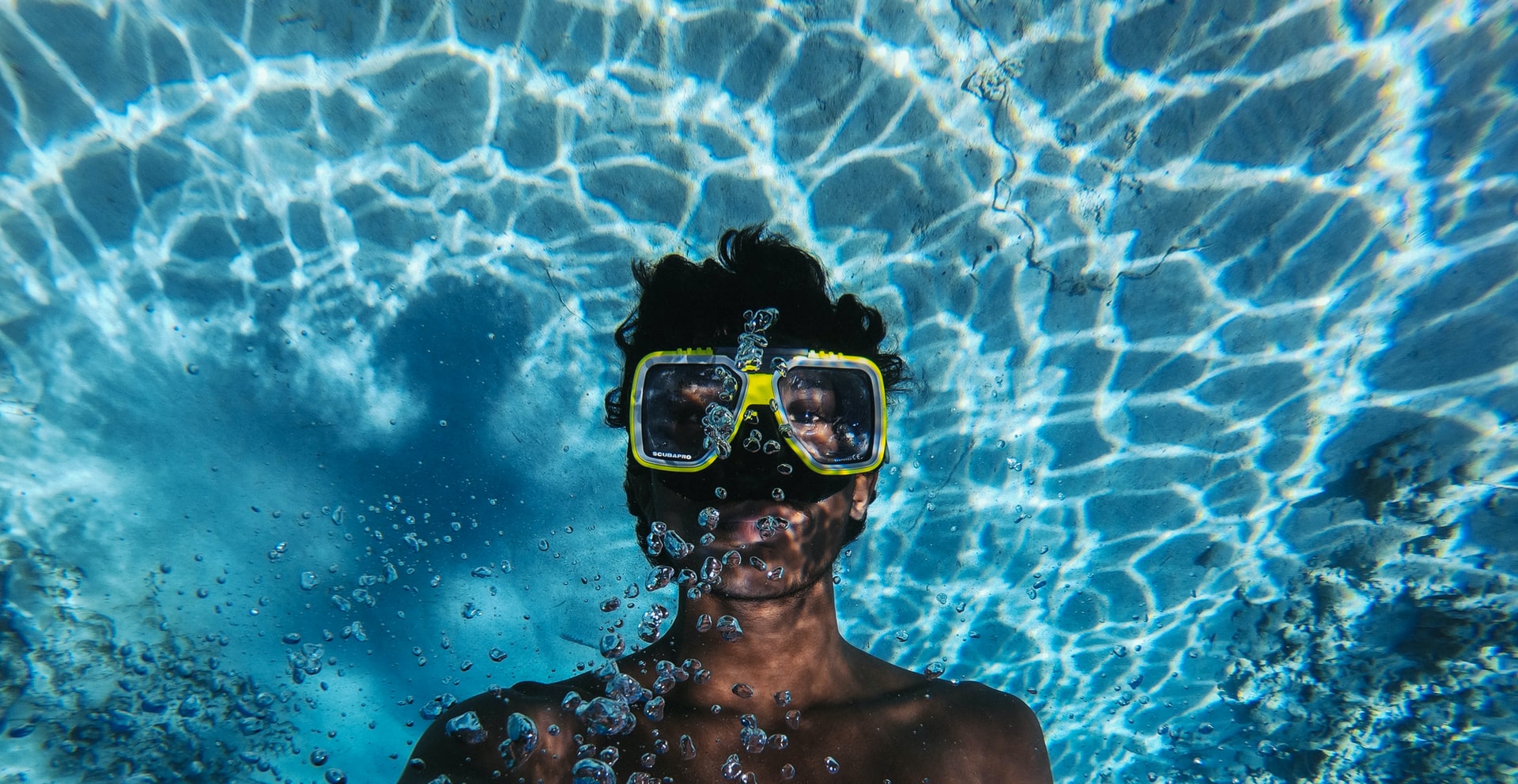
Can Snorkeling Cause a Sinus Infection? (+9 Tips to Avoid It)
-
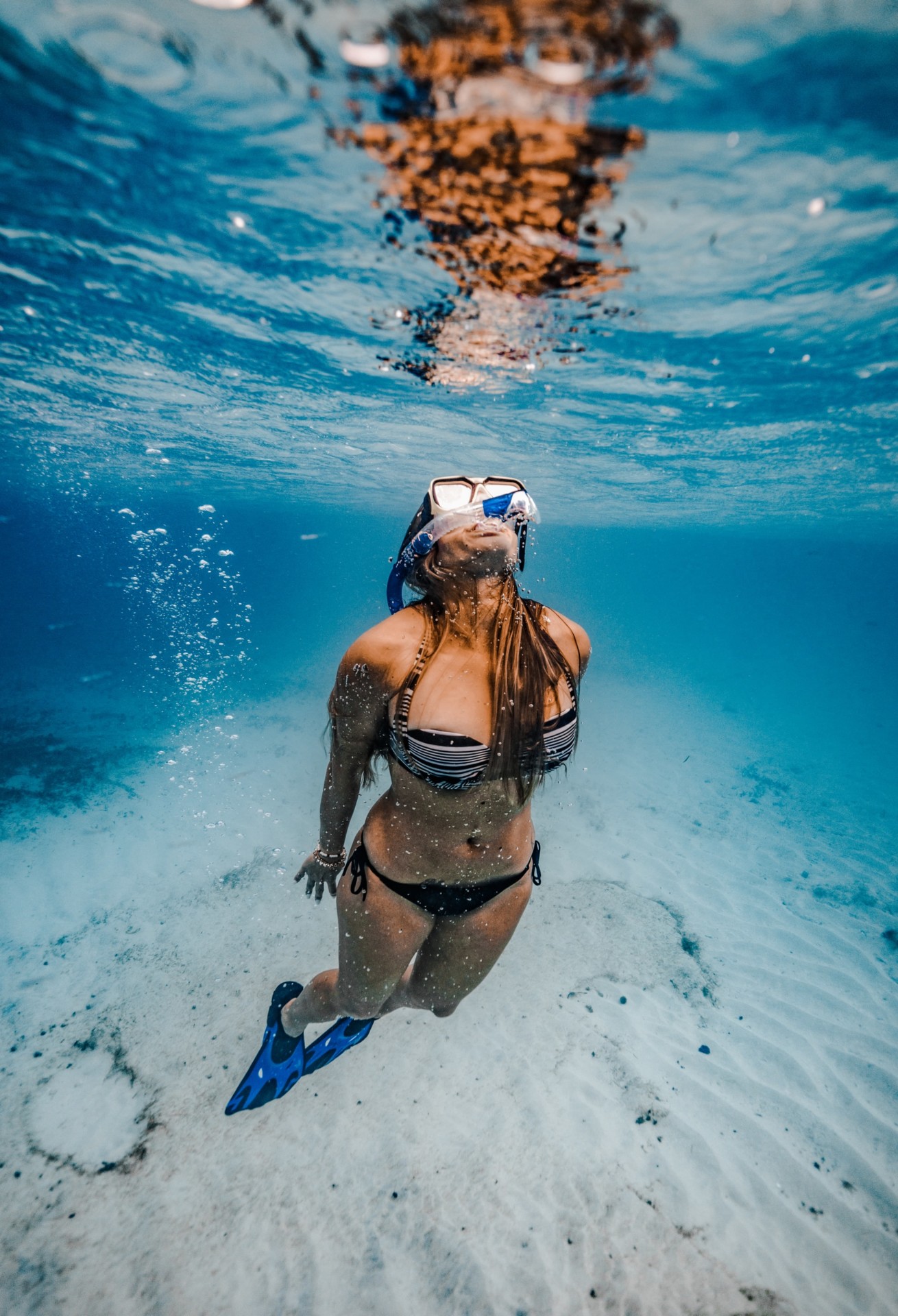
Can Snorkeling Cause a Sore Throat? 8 Common Causes (+Tips)
-
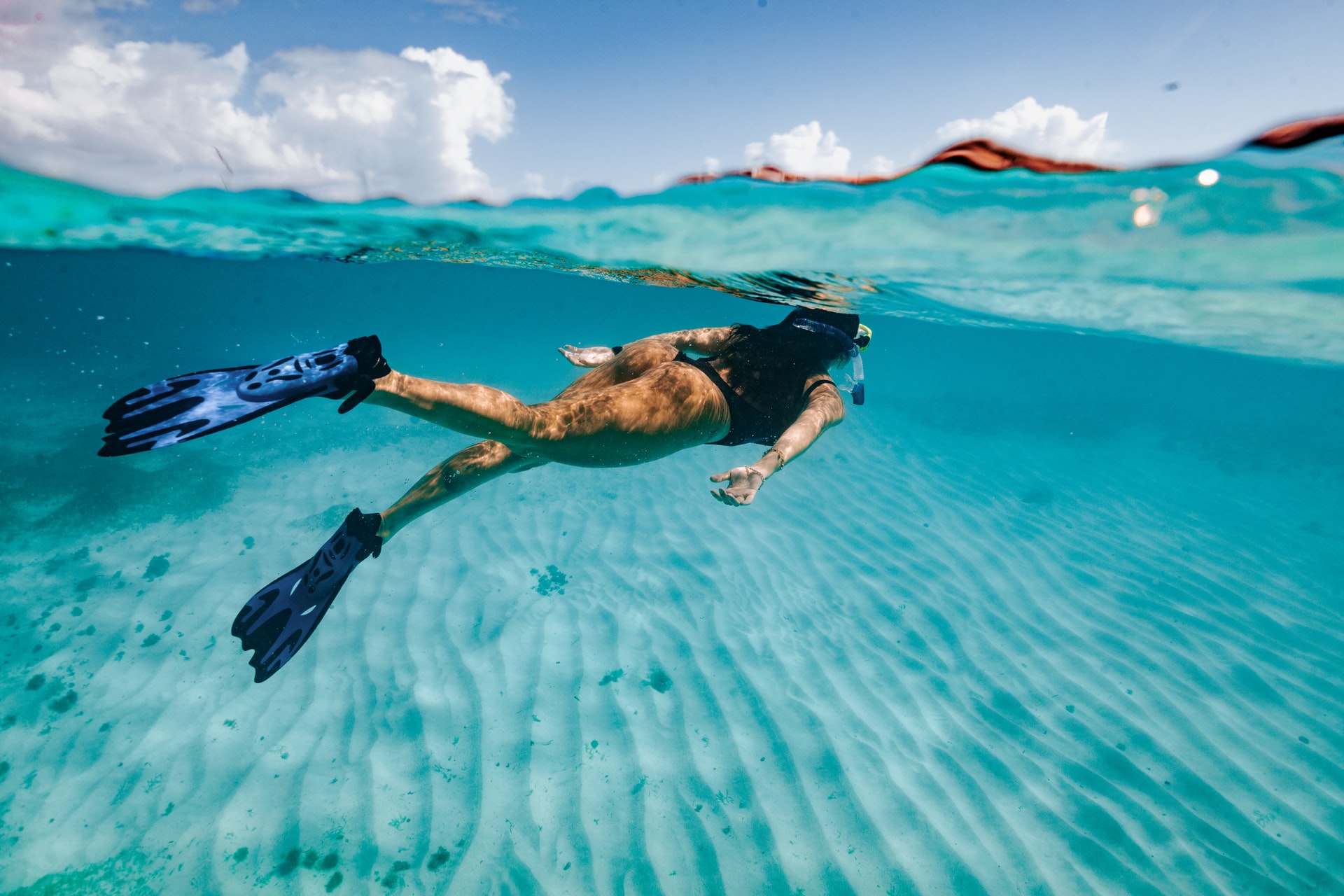
Can Snorkeling Cause Vertigo? (+8 Tips to Avoid It)
-
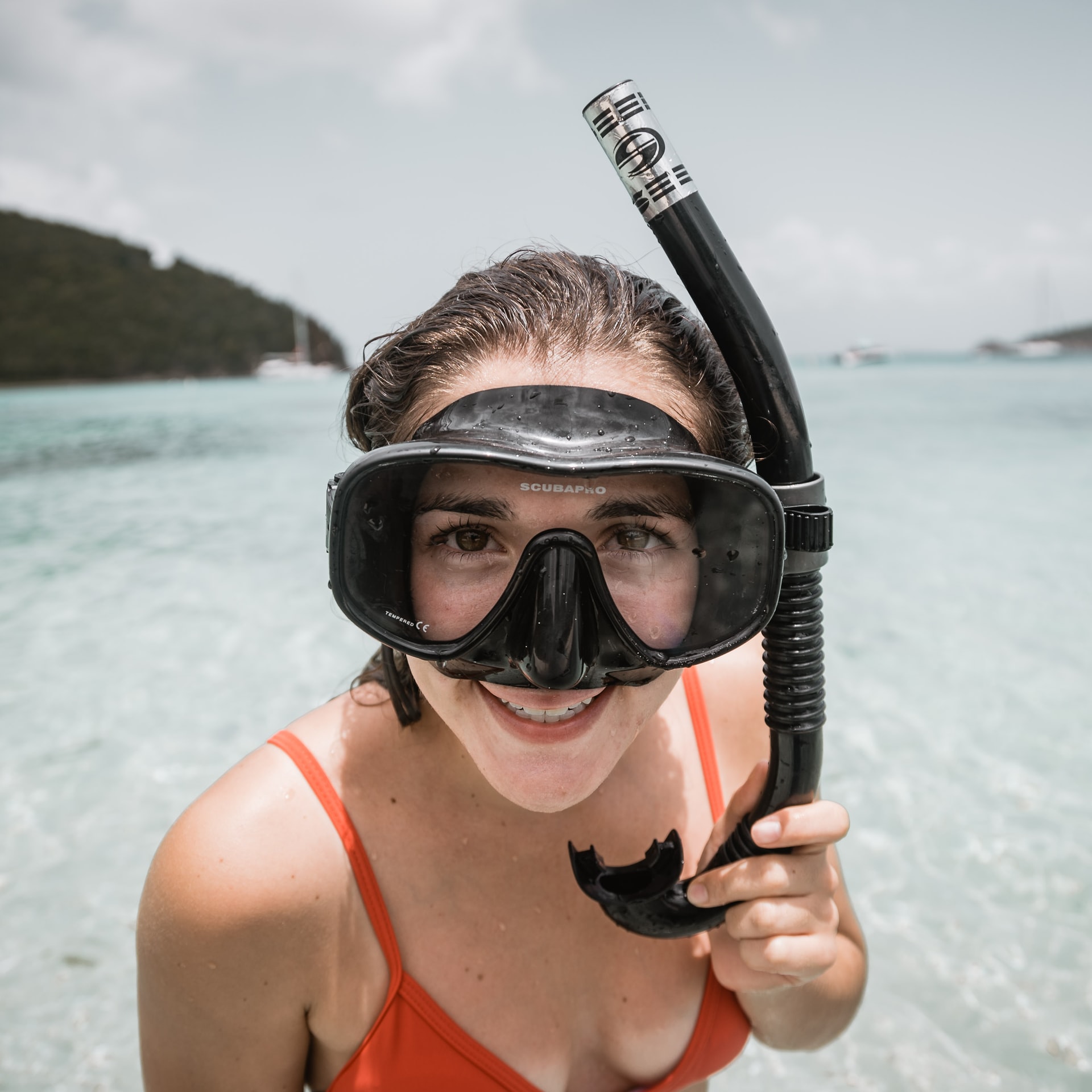
How Do Snorkel Masks Work? (+Regular Vs. Full-Face Masks)
-
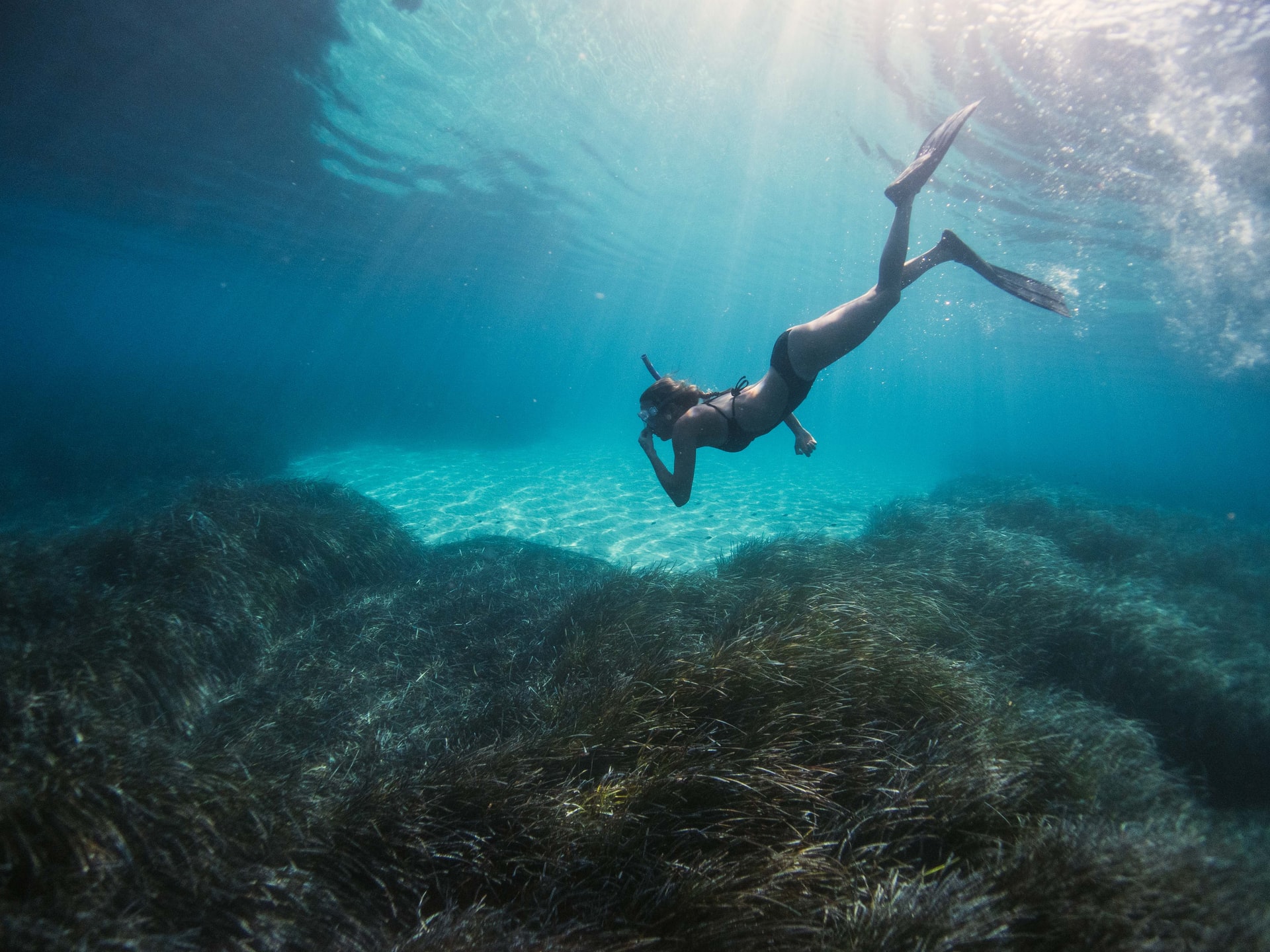
Why Does Snorkeling Make Me Nauseous? (11 Causes & Remedies)
-
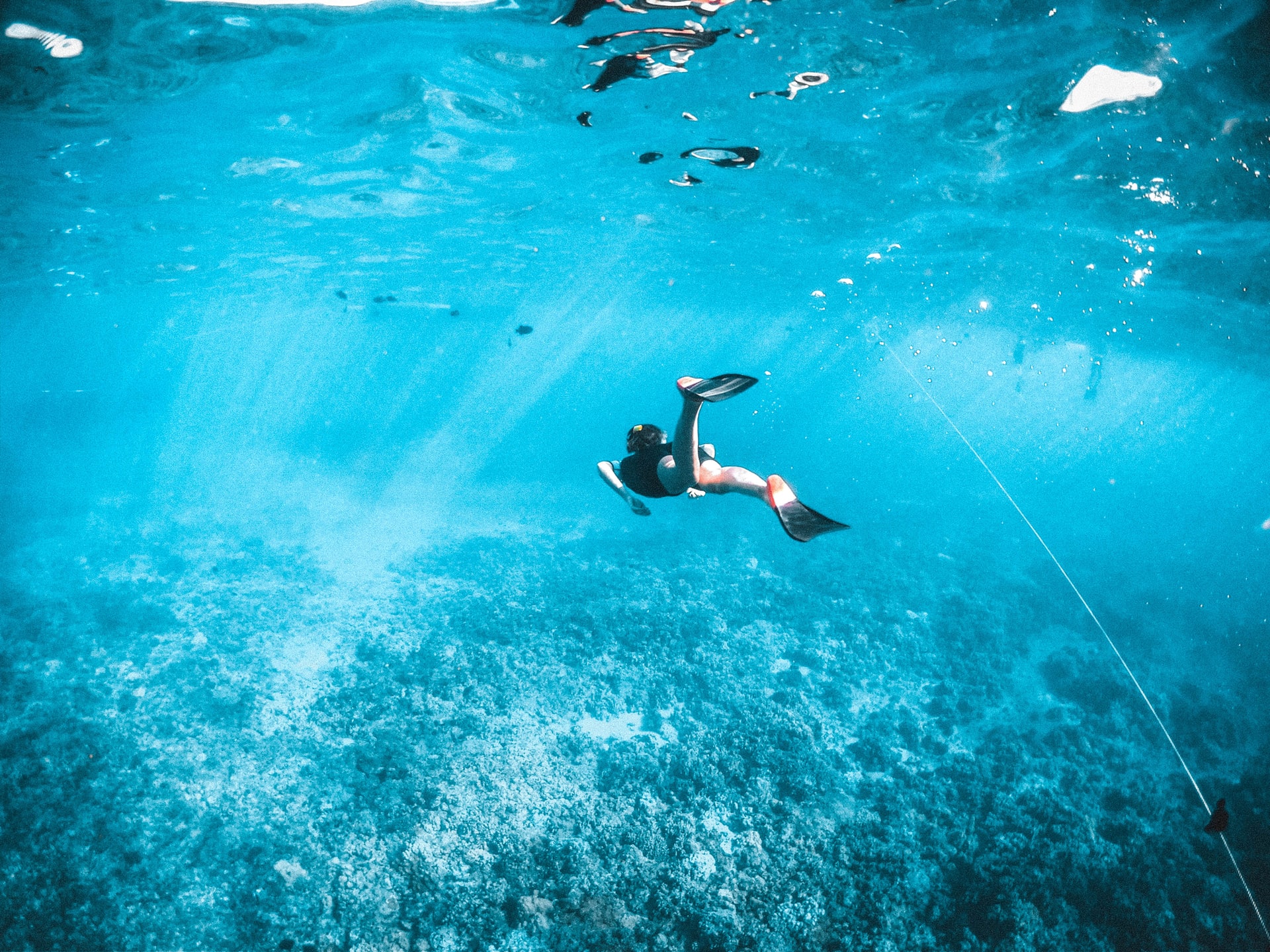
What Does Snorkeling Feel Like? FAQs Answered (for Beginners)
-
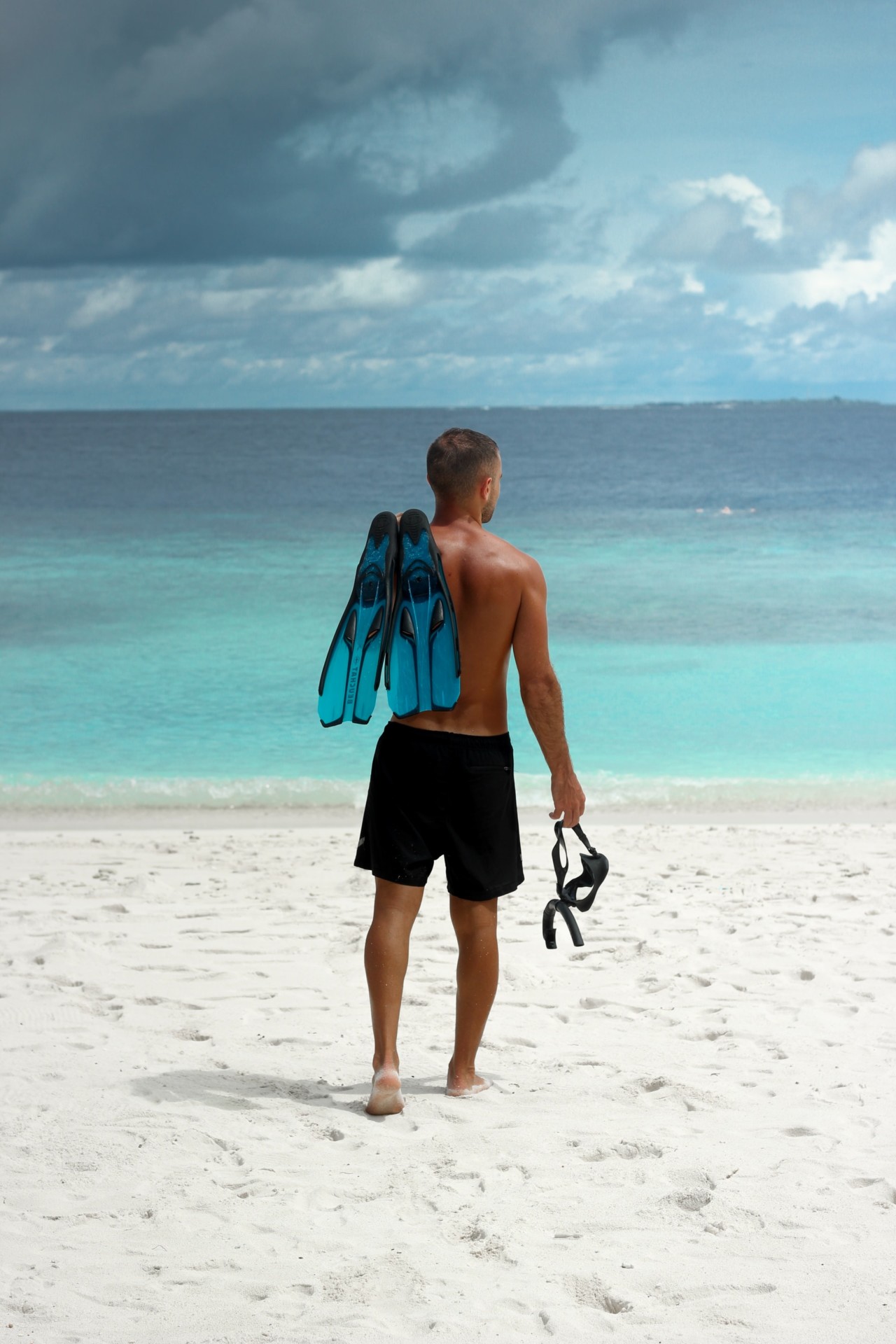
Does Rain Affect Snorkeling Visibility? 4 Ways It Does (+Helpful Tips)







